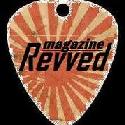(click on picture to open file)
By: Michael D. Vogel
© September 20, 1999. Michael D. Vogel. All Rights Reserved.
Published in:
The Album Network magazine – September 20, 1999
Webster’s defines a sound system as: sound (n), a particular auditory impression; the sensation perceived by the sense of hearing. And system (n), a regularly interacting or independent group of items forming a unified whole; a group of interacting bodies under the influence of a related force. Just like any great sound system, the eclectic Los Angeles-based rock band 311 is comprised of five perfectly matched–yet independently functioning–components, which when operating as a well-tuned unit creates an undeniable musical force.
Like many of their alternative rock contemporaries, 311 is taking that success to the road–where they see the performance as the key that opens the door to a successful career as a band. “The emotion that comes during a live show is so different than during the making of albums, which becomes a very personal thing. But a live show is this collective experience that we share with everybody,” says bassist extraordinaire P-Nut.
The stage is the first love of 311. They were discovered after building a dedicated following across the Midwest through the release of three independent records and an aggressive touring schedule. With this kind of dedication, Capricorn Records rewarded them with a contract and an opportunity to do what they love most–perform their own special, highly potent musical cocktail for the masses.
With a new CD, Soundsystem, close at hand, I recently spoke with 311 bassist P-Nut (from 311′s studio, The Hive, in beautiful sunny Burbank, California) about the importance of being a live band, the new album and the upcoming grassroots tour–as well as the state of music as we move toward the new epoch.
After the experimental Transistor CD, 311′s back with a guitar-heavy, dancehall-influenced rocker that really makes the walls thump. Do you feel there were some demons that weren’t fully exorcised on the last CD that you needed to deal with now?
P-Nut: “I think that was the motivation behind writing Soundsystem. We wanted an album that was a little bit more in our field of play. Transistor was great for a studio album, and we all think it will age really well, but we’re a band that needs to be in front of a live audience.
“For this album, we really wanted to play the majority of it live because that’s what we had in mind when it was written–to be played in front of a live audience. It can’t be ethereal and dubby, because that’s hard to duplicate in a live setting. It has to be powerful and straightforward.
“Comparing these last two albums, Transistor was written almost entirely on an individual basis, with not much collaboration going on. This was an important step for us because it allowed us each to grow as songwriters–which in turn helped create a much tighter, cohesive songwriting unit when crafting Soundsystem. We worked on these songs for over a year. We haven’t had this much time in the studio since we worked on the Music album.”
The period between these last two albums, although Capricorn did release a live CD, represents the longest break you’ve taken from recording.
“It was definitely time to take a break and enjoy what we’d done. We needed to take a deep breath and then get back out there and get everything going again. I think it’s good for our fans to take a break, as well. It seems that sometimes when a band becomes too popular, their music can over saturate the market and can possibly even damage an artist’s career. With two albums in a little over two years, plus 200-plus shows per year for that period, we absolutely wanted to prevent burnout from happening. It’s just good to get your head straight and be smart about your life, making sure you keep your relationships as good as possible, both personally as well as in the band.
“I remember Chris Cornell saying that one of the reasons Soundgarden broke up was because they stayed in the studio for 15 months. You have to be smart with your creativity; you can’t just push it. There needs to be balance. Take a vacation and come back energized and ready to throw yourself back into what you do. For us, that’s getting out and playing in front of a live audience.”
Last time around, you guys hit mostly larger venues, averaging 10,000 in attendance on the 1997 US headlining tour. Yet with such massive attendance success, why are you opting for a smaller venue grassroots tour?
“It’s just good to start things over, even though this is our fifth [studio] album. We just want to do things on a smaller scale, take things at our own pace. There will be no opening bands either, just us…’An Evening With 311.’ Besides, it would be weird to just go into a couple of thousand-seat venues after not doing anything for a couple of years. We’re doing things the safe way, which isn’t always our attitude. It’s just going to be a no-pressure situation, because we’re confident that each show will sell out.” [Editor’s note–at the conclusion of the small venue grassroots tour, 311 will be embarking on a worldwide tour, covering large venues for most of the year 2000.]
With concertgoers seemingly becoming more and more violent and riotous behavior breaking out even at Dave Matthews Band shows, are you concerned about this type of activity happening at a 311 show?
“It’s not the way things are supposed to be. We’re definitely not going to encourage crowd-surfing. Moshing is cool, but getting on your neighbor’s back and rolling over unwilling participants that are also standing in the pit, that’s not fun for anyone. Especially when it resorts to simple violence for the sake of violence. That’s not the image we want people associating with a 311 show.
“We love a rowdy crowd; that’s why we’re going to play clubs and bars that don’t have any seats and are all-ages, but that still doesn’t justify injuring someone else.”
What purpose do you see music filling now, as things are moving toward this violence trend?
“It can be a catalyst for it; it can make it happen or it can be an escape from it. We feel that the latter’s a much more agreeable path. Music and going to a concert should be an escape from where you are. You enjoy the atmosphere and the people around you. It should be a like a trip to the fair, providing a good time and a lasting memory. That’s the image we’re trying to project.”
As we move toward the year 2000, what type of responsibility does music have?
“There’s always going to be violence at certain shows, so you’d think a hardcore band like us would have the same problems, but such isn’t the case. Our message is so positive that it rarely comes up, because people are there just to have fun. They’re not there to see acts of brutality toward themselves or those around them. In order to help ensure this, we don’t overdo the alcohol promotion because everyone knows that always leads to violence.
“There’s always time to rage, but you need to be smart about it. Don’t disrespect the person next to you–stay in your own space, have fun, enjoy yourself and don’t be a jerk. At least then you know, in a little way, that you’re not adding to the problem. That’s our whole philosophy. There are thousands of problems out there in the world; we only want to make it as good as we possibly can.
“Even if it’s not truly a conscious thing, it’s definitely a subconscious thing, definitely affecting all of us. It’s a good place to be. Everyone’s up for new challenges and that’s what it’s always been about. We always make new hurdles to overcome. So, even at this pinnacle we’re at right now, we’re always looking to push the envelope by outdoing ourselves. That’s the great thing about being in a band: always trying to reinvent yourself and not trying to recreate what you’ve already done.
“I’m not saying we’ve reached the pinnacle of positivity, but we’re definitely keeping things on that side. We know that having a good philosophy allows us to get the most out of life, rather than being cloudy and bringing everyone else down. Being able to do what you want for a living is such a joy that there’s really no reason to ever complain about it. So, as a result, we sing about good things. And if a problem does arise, then deal with it.” ^m^
Line-Up: Origin:
Nicholas Hexum – Vocals & Guitar Originally from Omaha, the boys of 311
Count SA Martinez – Vocals & Scratches now reside in Southern California
Timothy J. Mahoney – Guitar
P-Nut – Bass
Chad Sexton – Drums & Percussion
How Label Deal Came About:
After independently releasing three albums and touring aggressively throughout the Midwest, 311 began to earn a dedicated regional following. In 1992, 311 moved to Los Angeles and, through massive word of mouth, quickly captured the attention of Capricorn Records.
About The Current CD:
After two certified Gold albums, followed by two certified Platinum-plus albums as well as a certified Platinum video package, Soundsystem is the fifth studio release from 311 and their sixth album overall for Capricorn Records.
Discography:
Soundsystem (Capricorn, 1999) Music (Capricorn, 1993)
Live (Capricorn, 1998) Hydroponic (self-released, 1992)
Transistor (Capricorn, 1997) Unity (self-released, 1991)
311 (Capricorn, 1995) Dammit! (self-released, 1990)
Grassroots (Capricorn, 1994)
Produced By:
Hugh Padgham and Scott ‘Scotch’ Ralston
Label:
Capricorn
Website:
© September 20, 1999. Michael D. Vogel. All Rights Reserved. This originally appeared on the Vogelism blog at https://www.vogelism.com, authored by Michael D. Vogel. This article may be shared or reprinted as long as this entire copyright message, including the source location of this article, accompanies it.














 Welcome to Michael D. Vogel’s online portfolio. I am a Los Angeles-based music journalist/content creator, and self-professed music-fanatic/radio-aholic. With more than 20 years of experience in multiple facets of the music industry including; music programming/air talent for terrestrial and internet radio as well as record label artist promotion, I have a finger on the pulse of what's new and under the radar in the emerging music scene. Areas of specific expertise include, but not limited to: rock (heritage, mainstream, heavy metal/hard rock and alternative), pop and adult contemporary, as well as radio, pop culture, sports, exercise and politics. I am applying my passion for music as a freelance writer for the Examiner as National Music Examiner (Examiner.com) in addition to West Coast Editor for FreeGotham (FreeGotham.com). Find me at michael@vogelism.com.
Welcome to Michael D. Vogel’s online portfolio. I am a Los Angeles-based music journalist/content creator, and self-professed music-fanatic/radio-aholic. With more than 20 years of experience in multiple facets of the music industry including; music programming/air talent for terrestrial and internet radio as well as record label artist promotion, I have a finger on the pulse of what's new and under the radar in the emerging music scene. Areas of specific expertise include, but not limited to: rock (heritage, mainstream, heavy metal/hard rock and alternative), pop and adult contemporary, as well as radio, pop culture, sports, exercise and politics. I am applying my passion for music as a freelance writer for the Examiner as National Music Examiner (Examiner.com) in addition to West Coast Editor for FreeGotham (FreeGotham.com). Find me at michael@vogelism.com. 